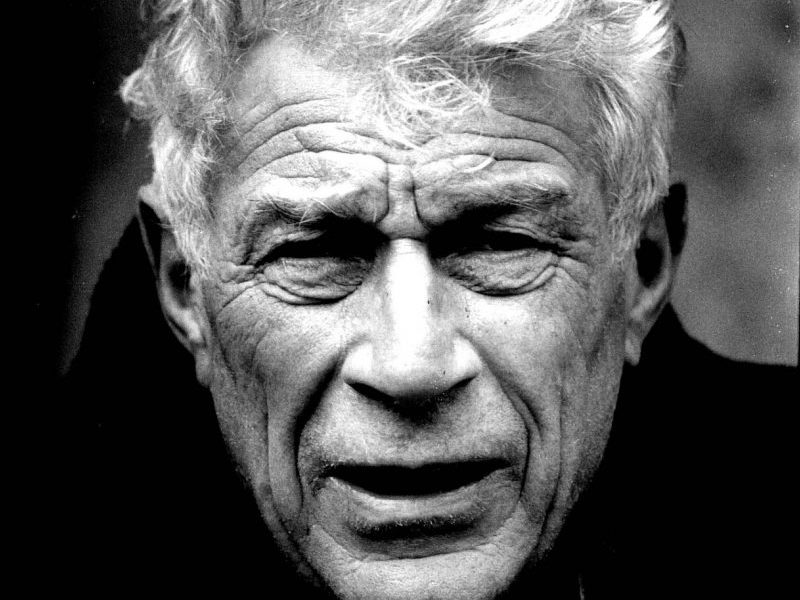Back in 2005, at London’s National Film Theatre and as part of a season of talks, screenings and events to celebrate his birthday, John Berger was in conversation with the writer Geoff Dyer. It was witty and wise, a rich exchange between two friends in front of hundreds of admirers. What I remember most though was the Q&A in which someone, as so often happens on these occasions, hogged the microphone and rambled on for what seemed an eternity. There was no clear question, no apparent insight. Soon there were sniggers, smirks, groans, raised eyebrows. The guy was obviously not one of ‘us’ – he was far from eloquent, comically non-urbane. People turned to Berger: would he complain, cut off the anti-flow, hurriedly direct himself to someone more ‘on point’?
Berger seemed impervious to our restlessness. He looked at his would-be interlocutor directly and occasionally nodded his head. Mostly he seemed deep in thought. Finally, when the rambler had stopped rambling, Berger was quiet for a short but pregnant while. ‘I’m not sure I grasped all that you’ve said,’ he began. Then, as if in some rhetorical version of the ideas in his essay ‘A Load of Shit’, he turned the mess of that audience member into something fertile and special, riffing on words, digging into concepts. He had seen and felt the man’s hunger to communicate, had listened to him without scorn or condescension, had treated him as an equal. It was humbling to behold.
The word ‘other’ is used a lot – often rather abstractly – in art and academic circles. For me, it was Berger’s openness to, curiosity in and, perhaps, need for ‘the other’ that was so compelling about him. In the lives and stories of migrants and marginals, the forgotten and the never-acknowledged, the dreamers and the deleted – it was here that he found his home, his calling. He may be best known for the book and Mike Dibb-directed television series Ways Of Seeing (1972), but at least as vital are King: A Street Story (1998), a novel about homelessness told from the perspective of a dog, and Pig Earth (1979), an amalgam of verse, short stories, and economic treatise that explores peasant existence in 20th-century France.
For much of his life Berger was semi-detached from Britain. He moved to France in 1962 leaving behind the parochialism of literary London. His relative indifference to Atlantic culture and his expanded political imagination (he championed Kurdish independence, translated poems by the Palestinian writer Mahmoud Darwish, corresponded with Subcomandante Marcos of the Zapatistas) seemed both mysterious and thrilling to me, corollaries of his openness to creative collaboration and experimenting with form and genre. He flew the flag for young artists and activists from all around the world – championing Turkish writers such as Latife Tekin and the Punjabi poet Amarjit Chandan, inspiring South Africans Alain Blondel and Shena Lamb who wrote The Parrot’s Egg (1985), an extraordinary account of a Xhosa woman living in Transkei, supported the Black Panthers.
Berger spoke with an accent, in cadences that told me there were other places, regions, mongrel possibilities. He came across as English and non-English, a listener as much as a storyteller, a pathfinder who was alive to the present, but also someone committed to memory and bruised continuities. His work was – is – so layered and multi-chambered that I know I will keep exploring, wandering, digging its spaces for a lifetime. His company, his voice, the direction of his gaze means more to me with every year that passes.
